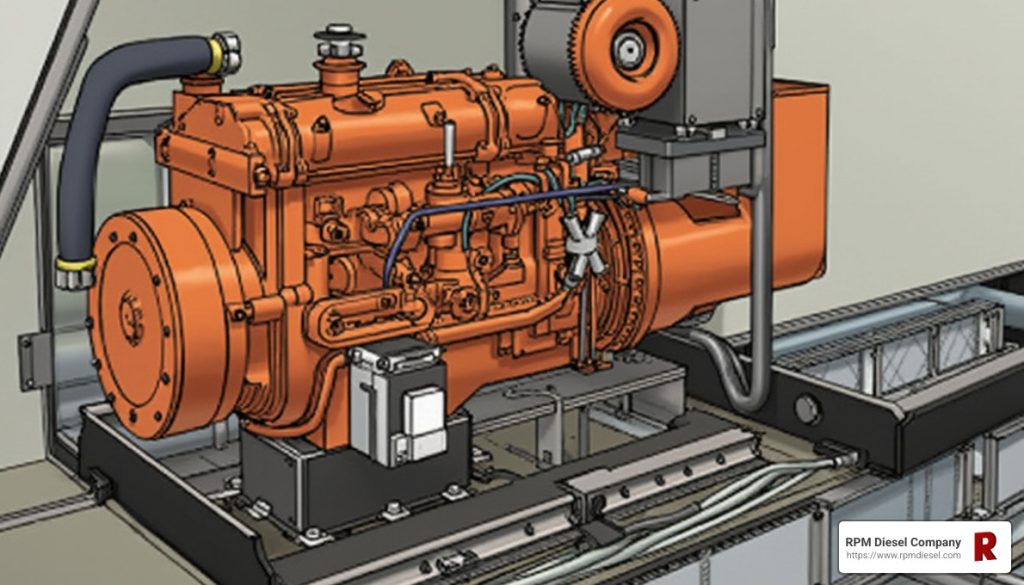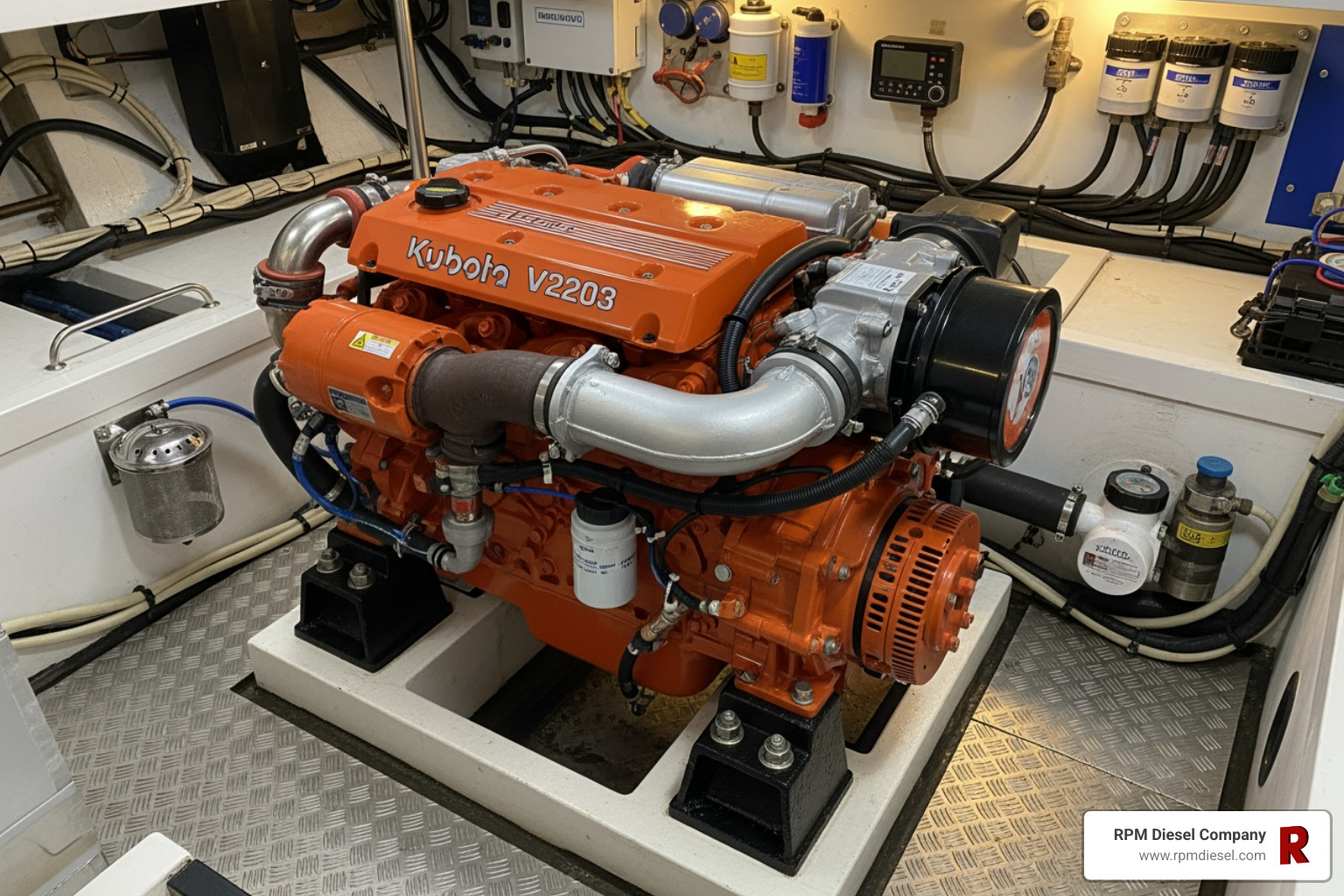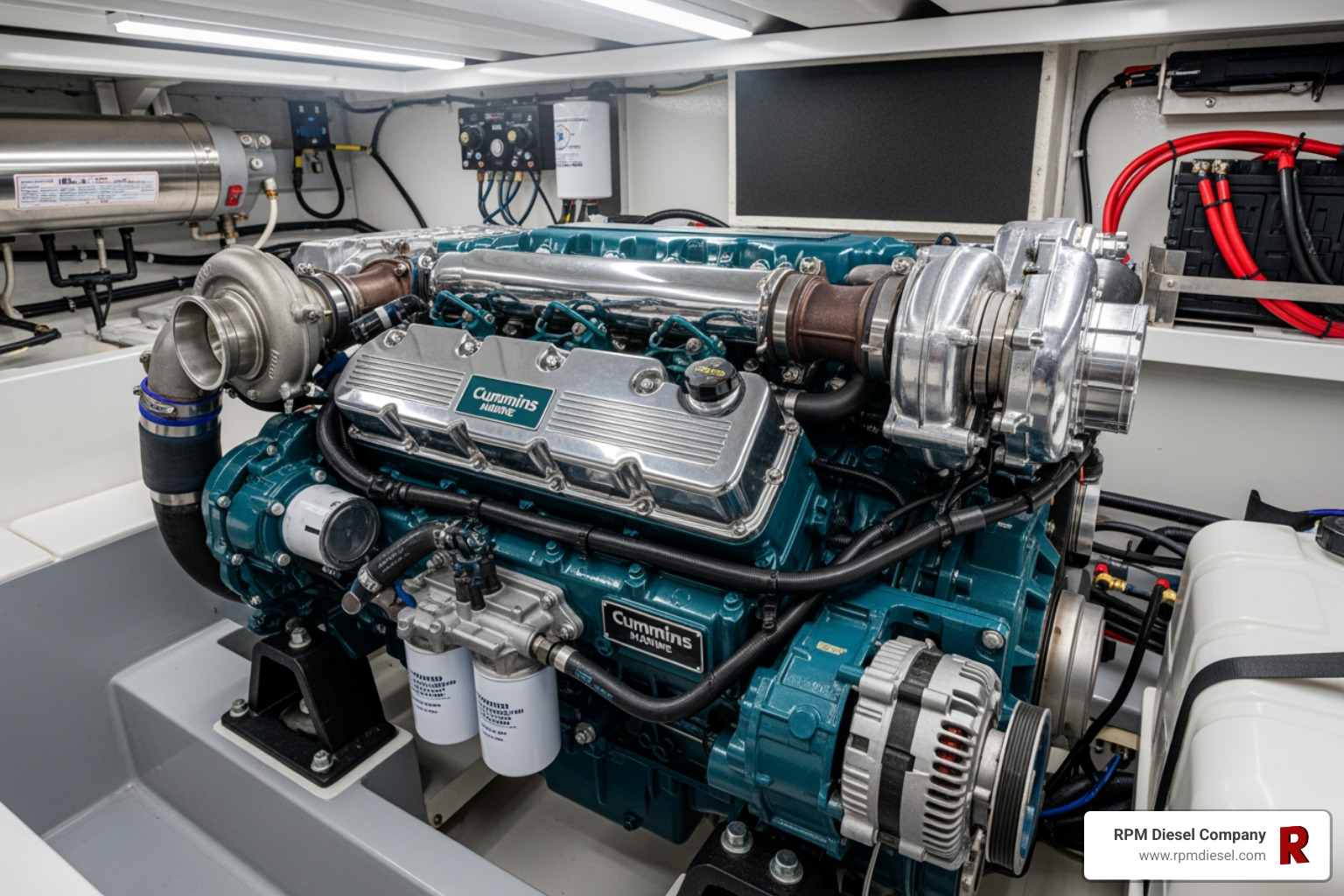Marine generator repair is crucial for every yacht owner who wants a seamless and safe seafaring journey. Your generator is the heart of your vessel’s electrical system, powering everything from lights to navigation tools. Yet, its demanding marine environment often leads to issues like corrosion and wear and tear that can compromise its performance.
Immediate Steps for Marine Generator Repair:
-
Find a Certified Service Provider: Always opt for certified professionals.
-
Regular Maintenance: Schedule regular oil changes and inspections to prevent bigger problems.
-
Immediate Issue Resolution: Address issues such as battery problems or clogged filters as soon as they emerge.
Neglecting regular maintenance can turn minor inconveniences into costly repairs. Frequent checks and professional expertise not only improve the generator’s lifespan but also safeguard your investment.
A marine generator can last up to 15 years with proper maintenance, including regular inspections and replacements. Keeping your generator in top shape ensures your luxury vessel remains a source of pleasure rather than stress.

Common Marine Generator Issues
Marine generators are a lifeline on the water, but they can sometimes run into problems. Here’s a look at some of the most common issues you might face and how to address them.
Starting Power Problems
When your generator won’t start, the culprit is often a lack of starting power. This issue frequently arises due to a dead battery, dirty or loose connections, or a tripped breaker switch. To resolve this, check the battery first. Charge or replace it if necessary. Next, clean and secure all connections, and ensure all switches are properly flipped.

Clogged Fuel Filter
A clogged fuel filter is another common headache. It typically happens because the generator sits unused for long periods, causing fuel to stagnate. Signs of this issue include rough idling, RPM trouble, and sudden stops. The solution? Change the fuel filter. Always keep a spare onboard. Regular maintenance and using an ethanol-specific additive can prevent this problem.
Clogged Carburetor
If your generator has a carburetor and it’s acting up, it might be clogged. Symptoms include difficulty starting, rough idling, and uneven RPMs. A quick fix is to spray carb cleaner into the carburetor and let it soak. However, for a long-term solution, remove the carburetor and give it a thorough cleaning once back at the dock.
Clogged Water Intake
When a generator runs hot, a clogged water intake might be to blame. If something is blocking the intake, turn off the generator and move the boat to dislodge it. If the issue persists, check the raw-water strainer by shutting off the seacock, cleaning the basket, and reopening the seacock.
No Power Output
Sometimes, a generator runs but doesn’t produce electricity. This can occur due to a loss of residual magnetism. To restore power, you may need to “flash” the generator by feeding voltage back into it from a 12-volt battery or another electrical source. Always follow the instructions in your generator’s owner’s manual for this process.
By understanding these common marine generator issues, you can quickly address them and get back to enjoying your time on the water. Regular maintenance and quick action can prevent these problems from turning into costly repairs.
How to Perform Basic Marine Generator Repairs
Dealing with marine generator issues can be daunting, but many problems are fixable with some basic know-how. Here’s a simple guide to help you perform essential repairs.
Battery Replacement
One of the most common issues is a dead battery. If your generator won’t start, begin by checking the battery. Replace it if it’s old or won’t hold a charge. Make sure all connections are clean and tight to ensure proper power flow.
Fuel Filter Change
A clogged fuel filter can stop your generator cold. To change it, first turn off the generator. Then, locate the fuel filter and remove it. Replace it with a new one. Always keep a spare filter on your boat. This simple task can prevent many fuel-related problems.
Carburetor Cleaning
If your generator has a carburetor and it’s not running smoothly, it might be clogged. A quick fix is to spray carb cleaner into the carburetor and let it soak. For a more thorough cleaning, remove the carburetor and clean it completely once you’re back at the dock.
Water Intake Check
If your generator is overheating, check the water intake. Turn off the generator and inspect the raw-water strainer. Clean the basket by shutting off the seacock, removing the basket, and clearing any debris. Reassemble and reopen the seacock to restore proper cooling.
Magnetism Restoration
Sometimes, a generator runs but doesn’t produce electricity due to a loss of residual magnetism. To fix this, you’ll need to “flash” the generator. This involves feeding a small amount of voltage back into the generator from a 12-volt battery or another source. Always follow your generator’s manual for the correct procedure.

By learning these basic marine generator repairs, you can tackle common issues and keep your generator running smoothly. Regularly performing these maintenance tasks will save you from more significant problems down the line.
Benefits of Professional Marine Generator Repair
When it comes to maintaining your marine generator, turning to professionals offers several key benefits. Let’s explore why expert repair services are the way to go.
Lower Emissions
Professional repairs can lead to lower emissions. Expert technicians ensure that your generator runs efficiently, which means it burns fuel more cleanly. This is not only better for the environment but also for your engine’s performance. Keeping emissions low helps maintain compliance with environmental regulations and reduces the carbon footprint of your vessel.
Reduced Noise
A well-maintained generator operates more quietly. Professionals can fine-tune your generator, ensuring all components work harmoniously. This reduces the noise levels, making your time on the water more peaceful and enjoyable. Whether you’re relaxing or entertaining guests, a quieter generator adds to the comfort of your boating experience.
Less Frequent Repairs
Routine professional maintenance can result in less frequent repairs. Technicians perform thorough inspections and address minor issues before they become major problems. This proactive approach extends the life of your generator and prevents unexpected breakdowns. Regular check-ups and service mean fewer interruptions and more time spent enjoying your vessel.
Professional Expertise
Perhaps the most significant advantage is the professional expertise that technicians bring. They possess specialized knowledge and skills, allowing them to diagnose and fix issues quickly and accurately. Professionals follow strict safety protocols, ensuring repairs are done safely and effectively. For example, RPM Diesel employs factory-trained technicians who specialize in servicing brands like Northern Lights, Onan, and Cummins. This expertise ensures that your generator is in capable hands and operates at peak performance.

By choosing professional marine generator repair, you gain peace of mind knowing your generator is running efficiently and reliably. This approach not only improves performance but also safeguards your investment, keeping your marine trips stress-free.
Frequently Asked Questions about Marine Generator Repair
Is it worth fixing a portable generator?
Deciding whether to repair a portable generator depends on a few factors. Consider the repair costs first. If fixing the generator costs less than half the price of a new one, repair is often a good choice. However, if your generator is old and has frequent breakdowns, it might be more cost-effective to replace it.
Consult a professional to get an accurate assessment. They can help you weigh the costs and benefits, ensuring you make the best decision for your situation.
What is the most common problem of generators?
The most common issue with generators is neglected maintenance. Many problems, like starting failures or clogged filters, arise because regular upkeep is overlooked. Wear and tear also play a significant role, especially in harsh marine environments.
For example, corrosion can quickly damage metal parts, leading to failures if not addressed. Regular maintenance, such as cleaning, inspections, and part replacements, can prevent these issues and keep your generator running smoothly.
How long do marine generators last?
A well-maintained marine generator can last around 10 years. However, its lifespan can be affected by several factors. Corrosion from saltwater exposure and wear and tear from frequent use are common challenges.
To maximize the lifespan of your generator, regular maintenance is crucial. This includes oil changes, filter replacements, and addressing any signs of wear early. By staying proactive, you can ensure your generator remains reliable for years to come.
Conclusion
At RPM Diesel Company, we understand the importance of a reliable marine generator for your vessel’s comfort and functionality. Our comprehensive service is designed to meet all your marine generator repair needs, ensuring that you spend less time in port and more time enjoying the open water.
What sets us apart is our extensive parts inventory. We stock a wide range of hard-to-find parts, which means quicker repairs and less downtime for your boat. Our team of factory-trained technicians is equipped with the expertise to handle any generator issue, from routine maintenance to complex repairs.
Whether you’re in Fort Lauderdale, Miami, or anywhere in between, we are committed to providing you with the highest quality service. Our goal is to keep your marine generator running smoothly and efficiently, so you can have peace of mind knowing your power needs are in expert hands.
Choose RPM Diesel Company for your marine generator repair and experience the difference of working with a trusted leader in the industry.






